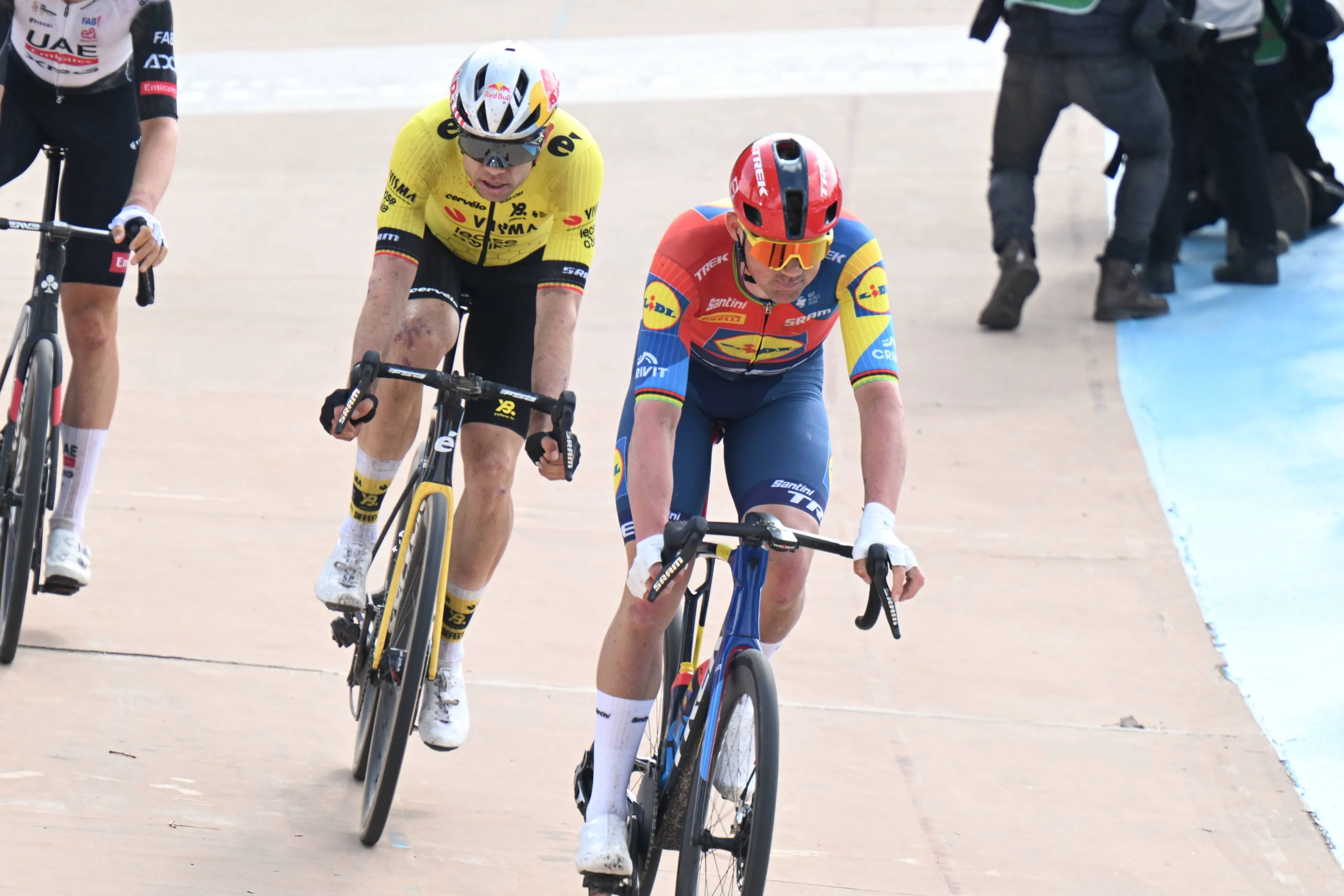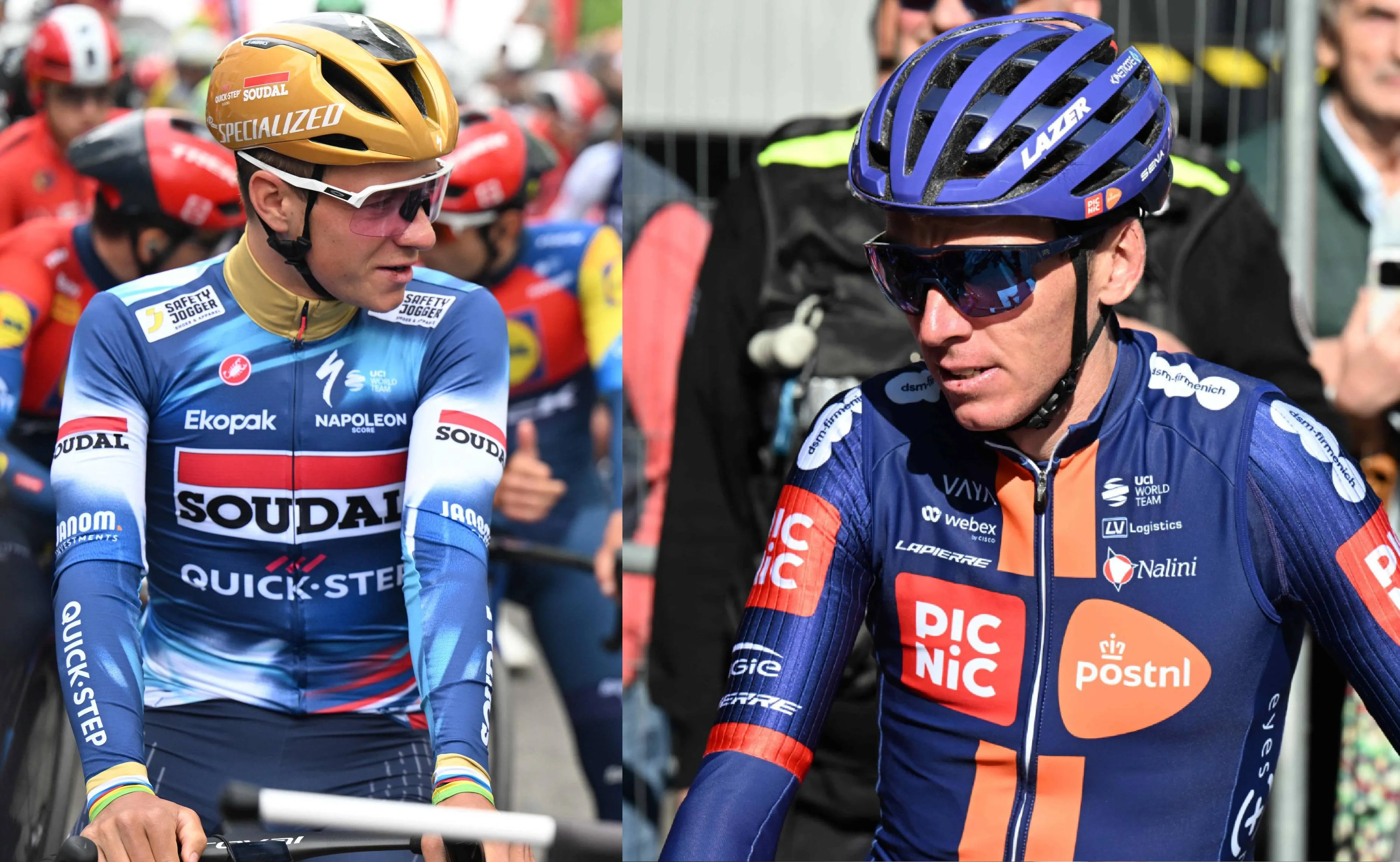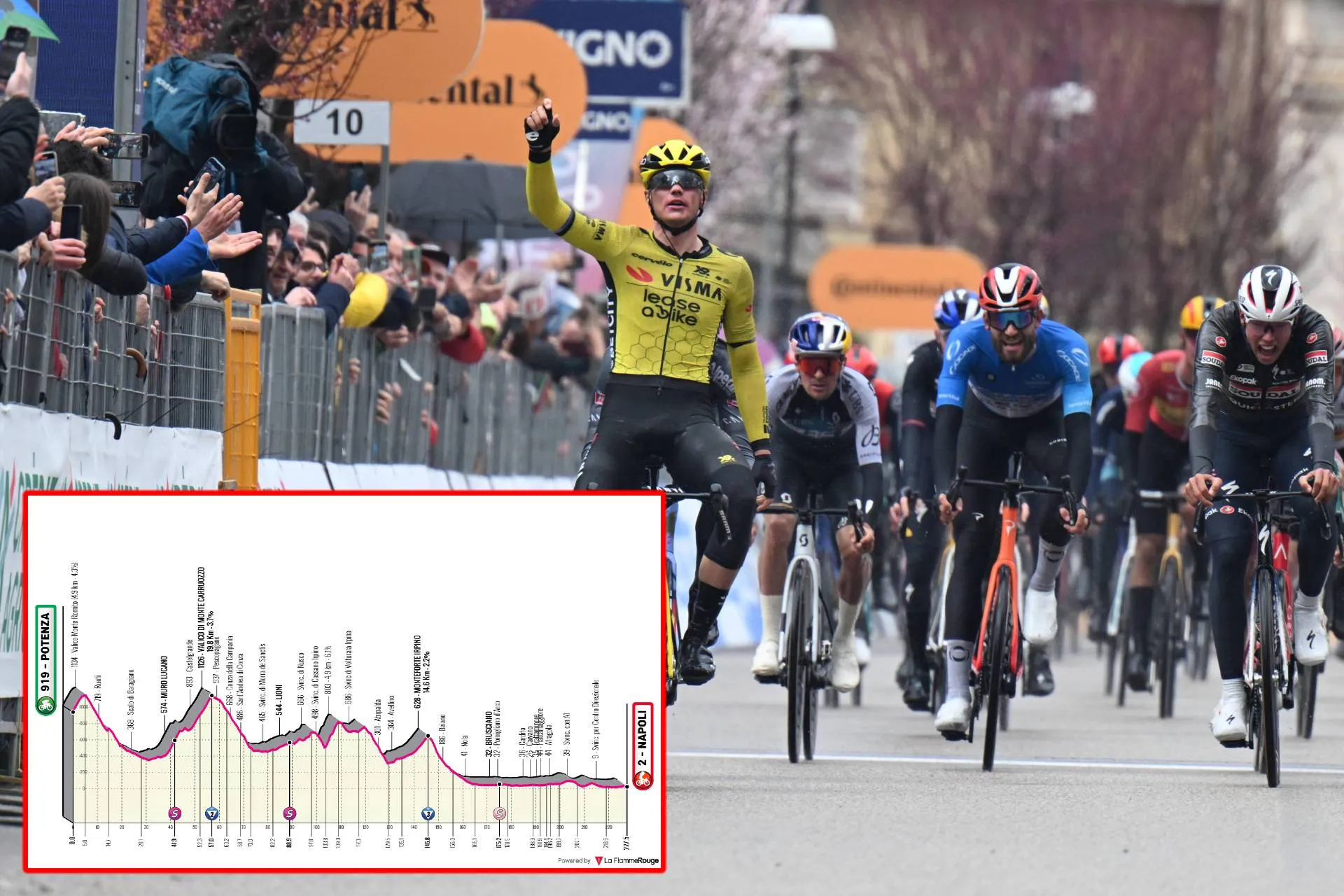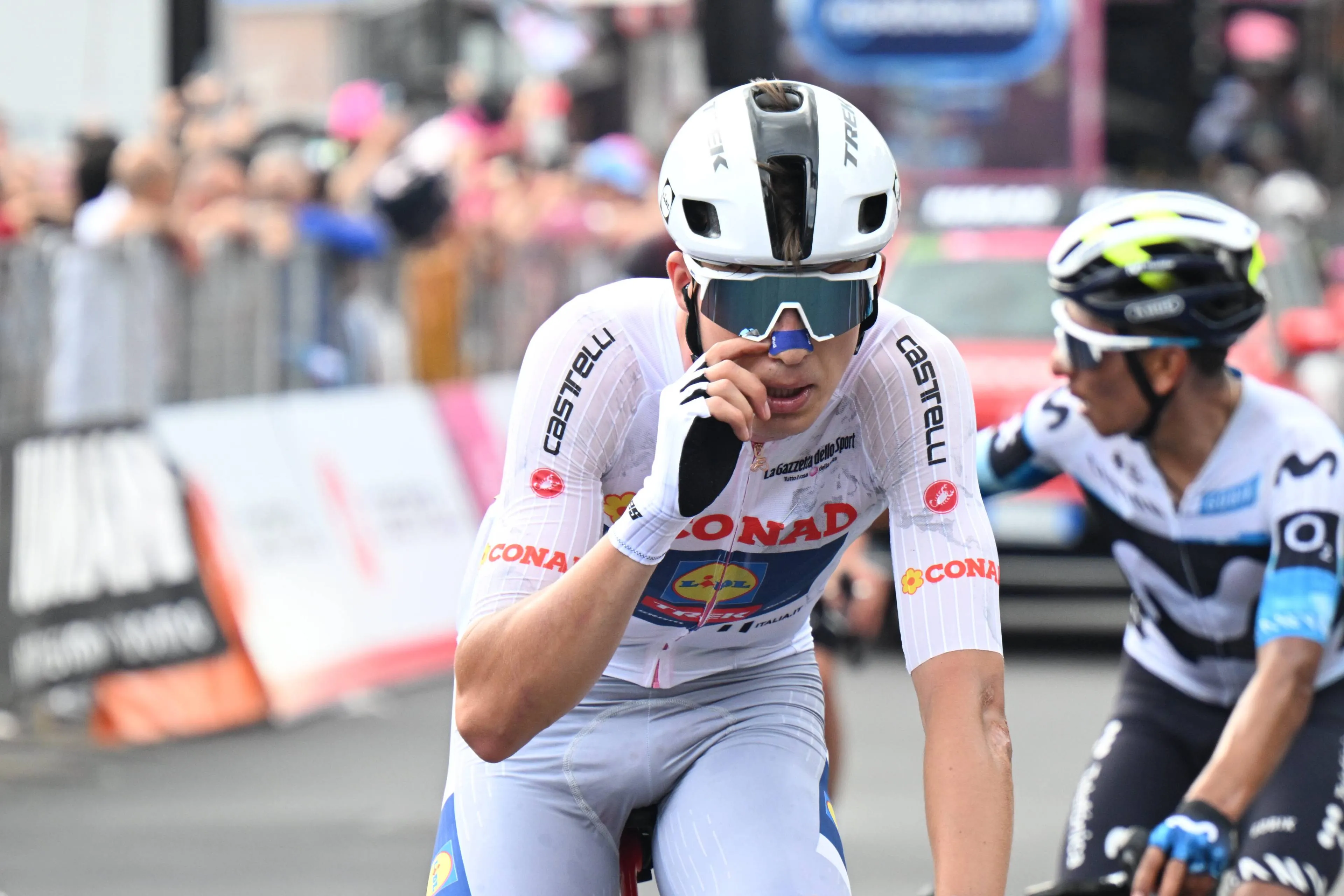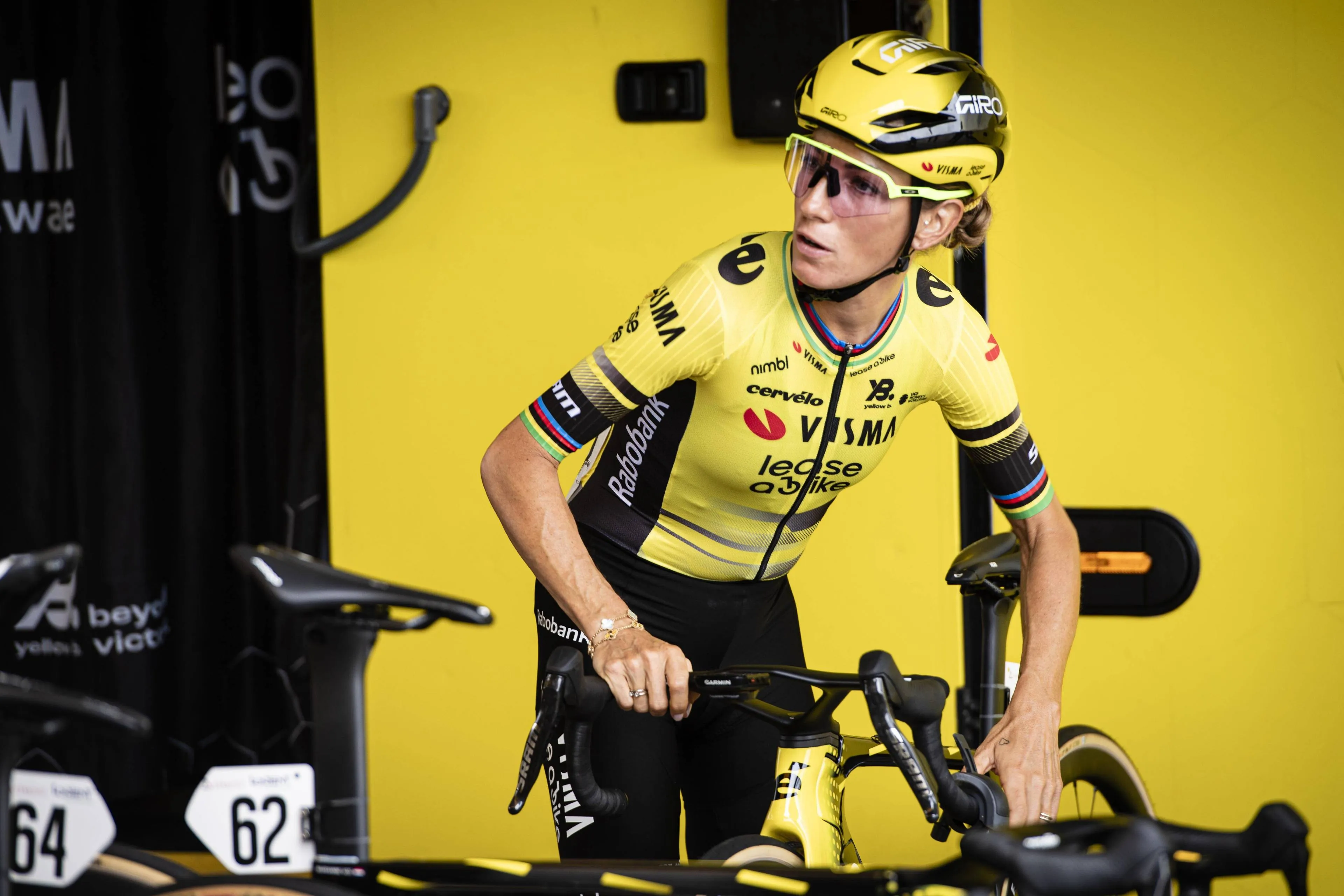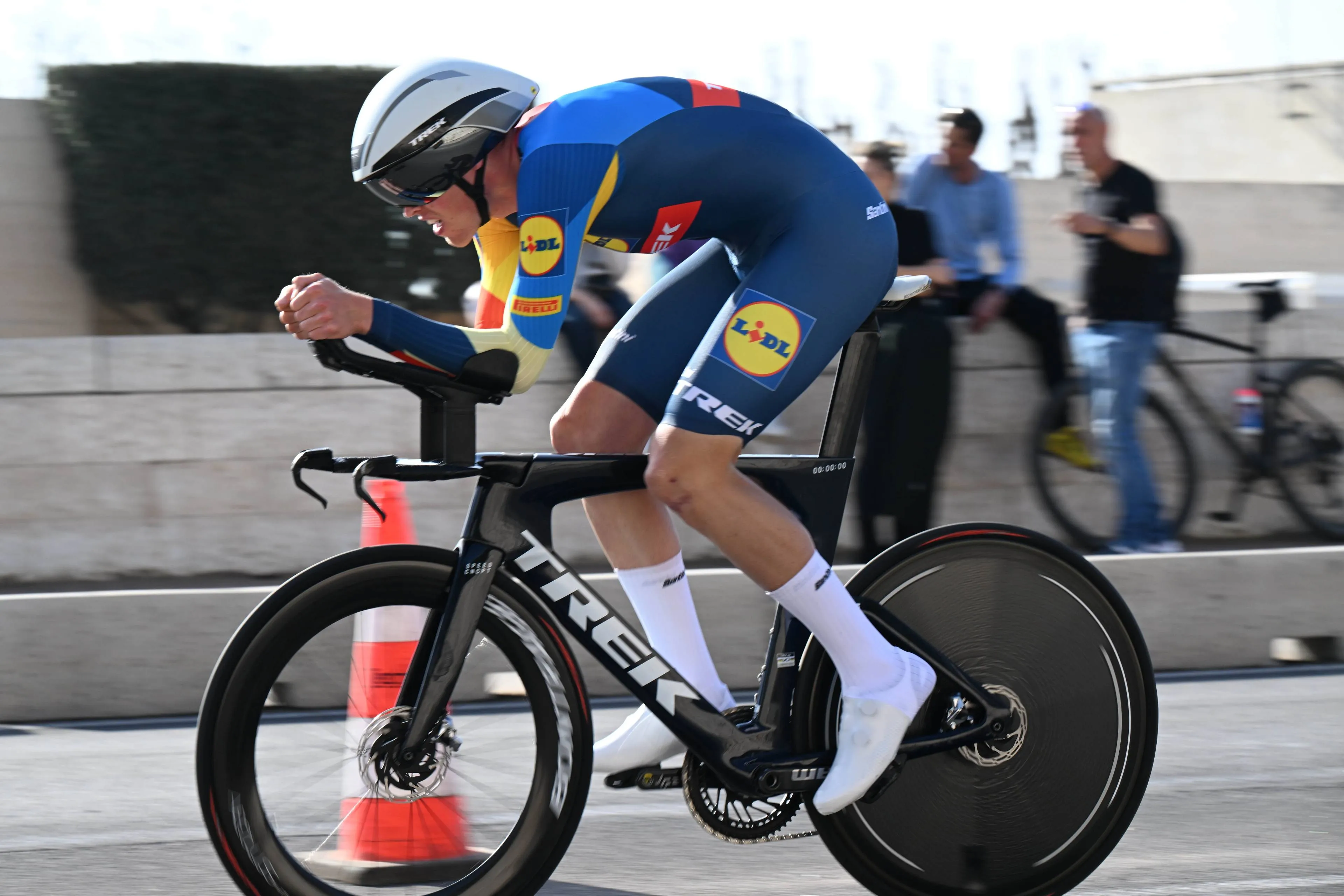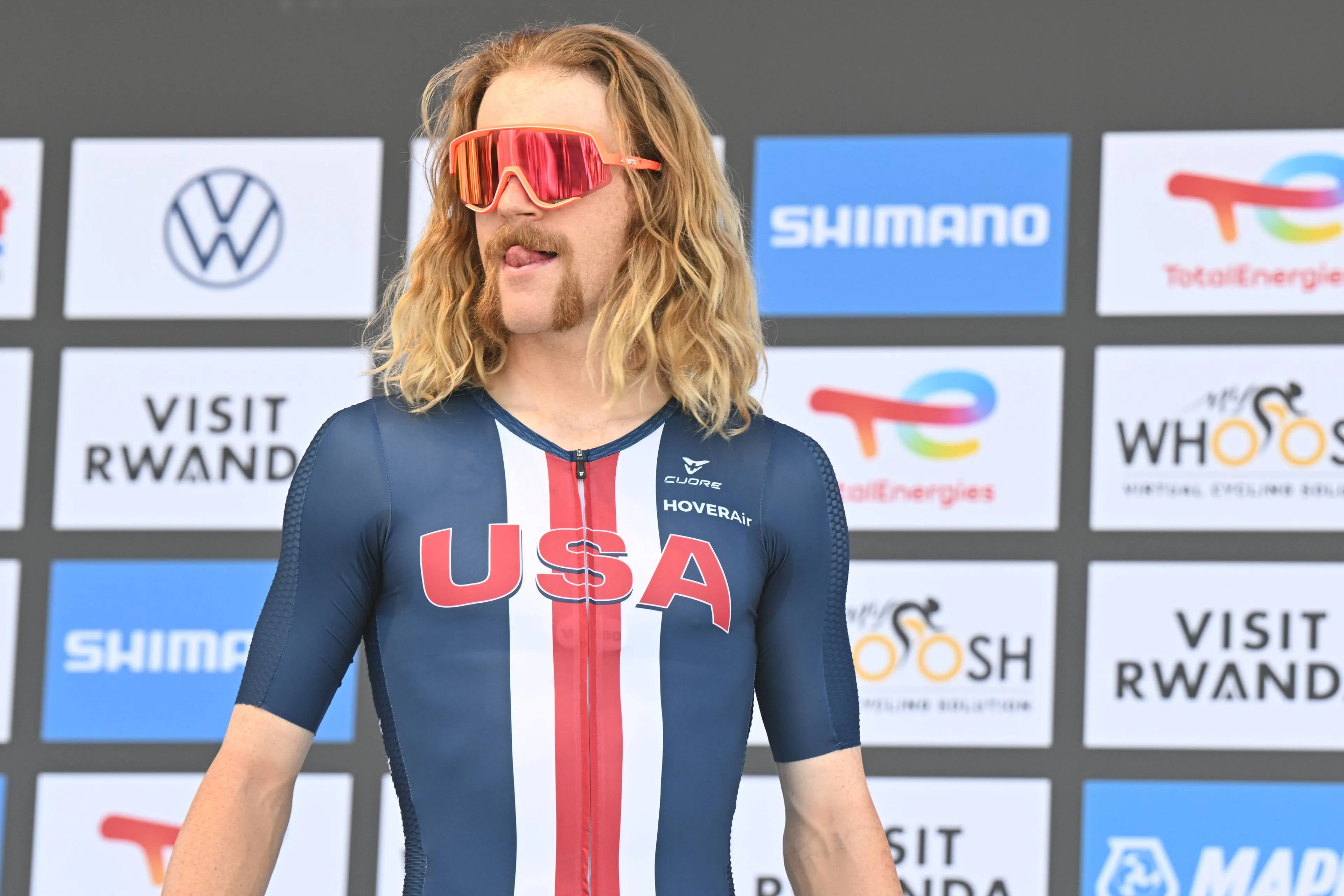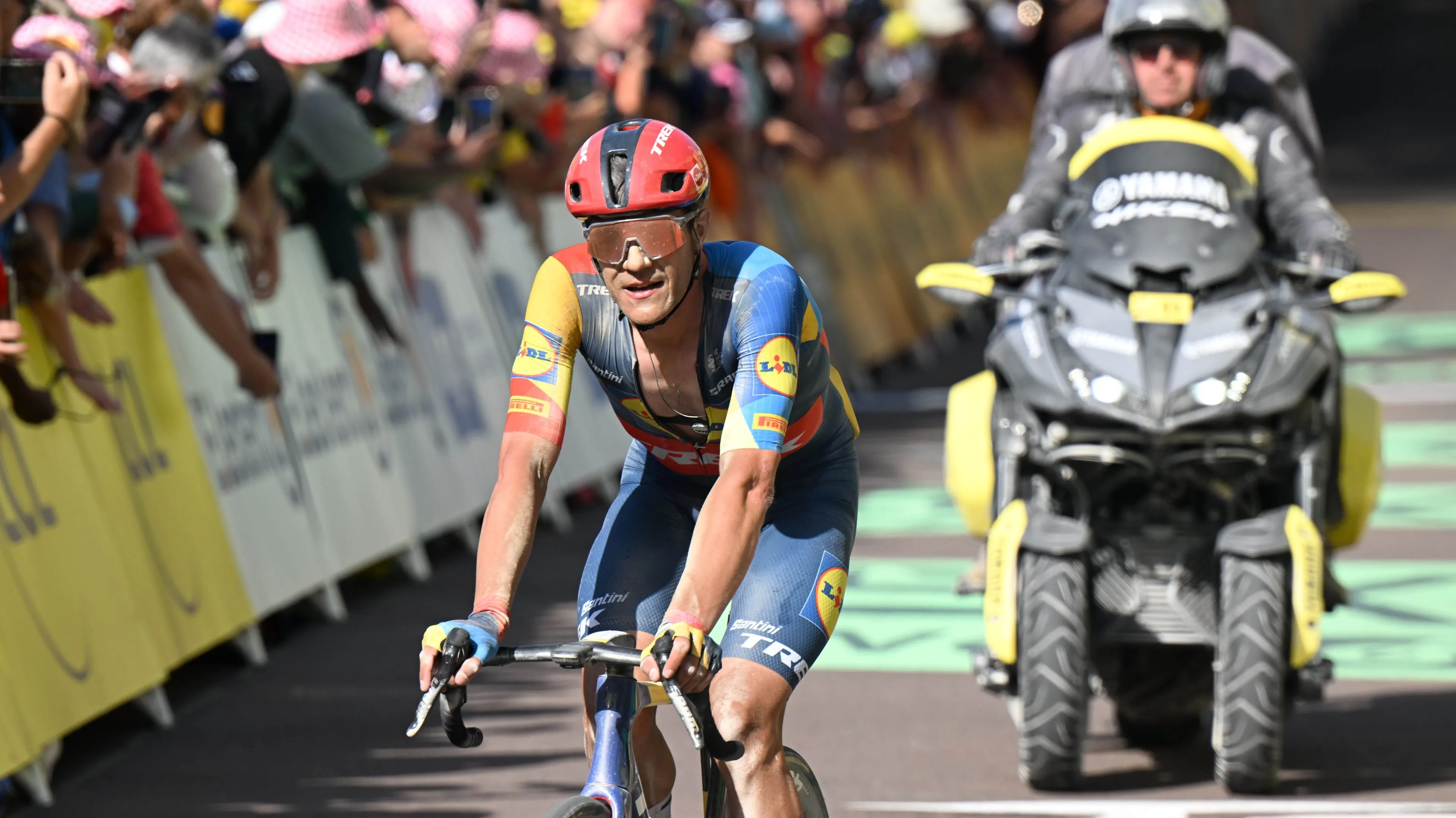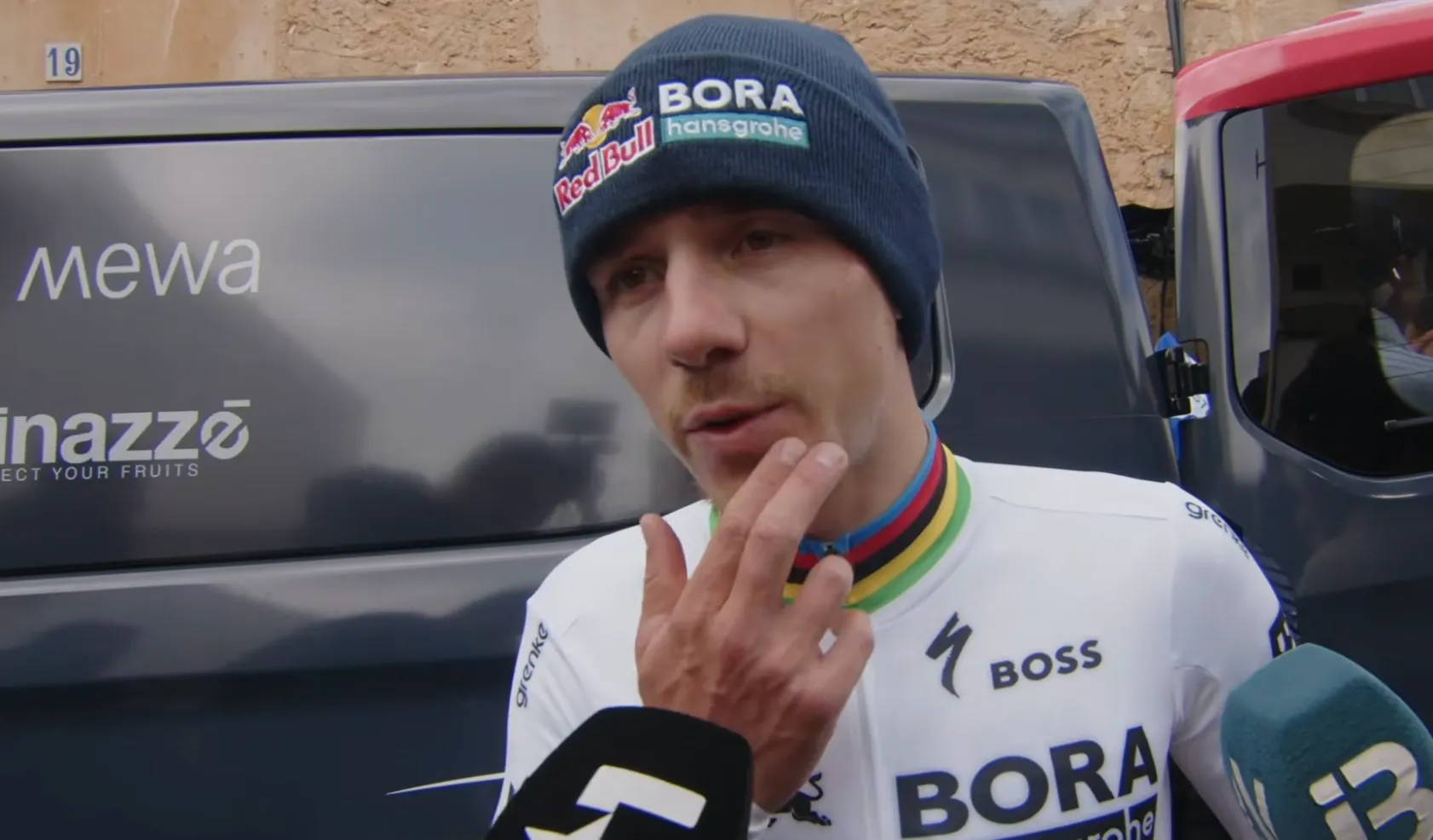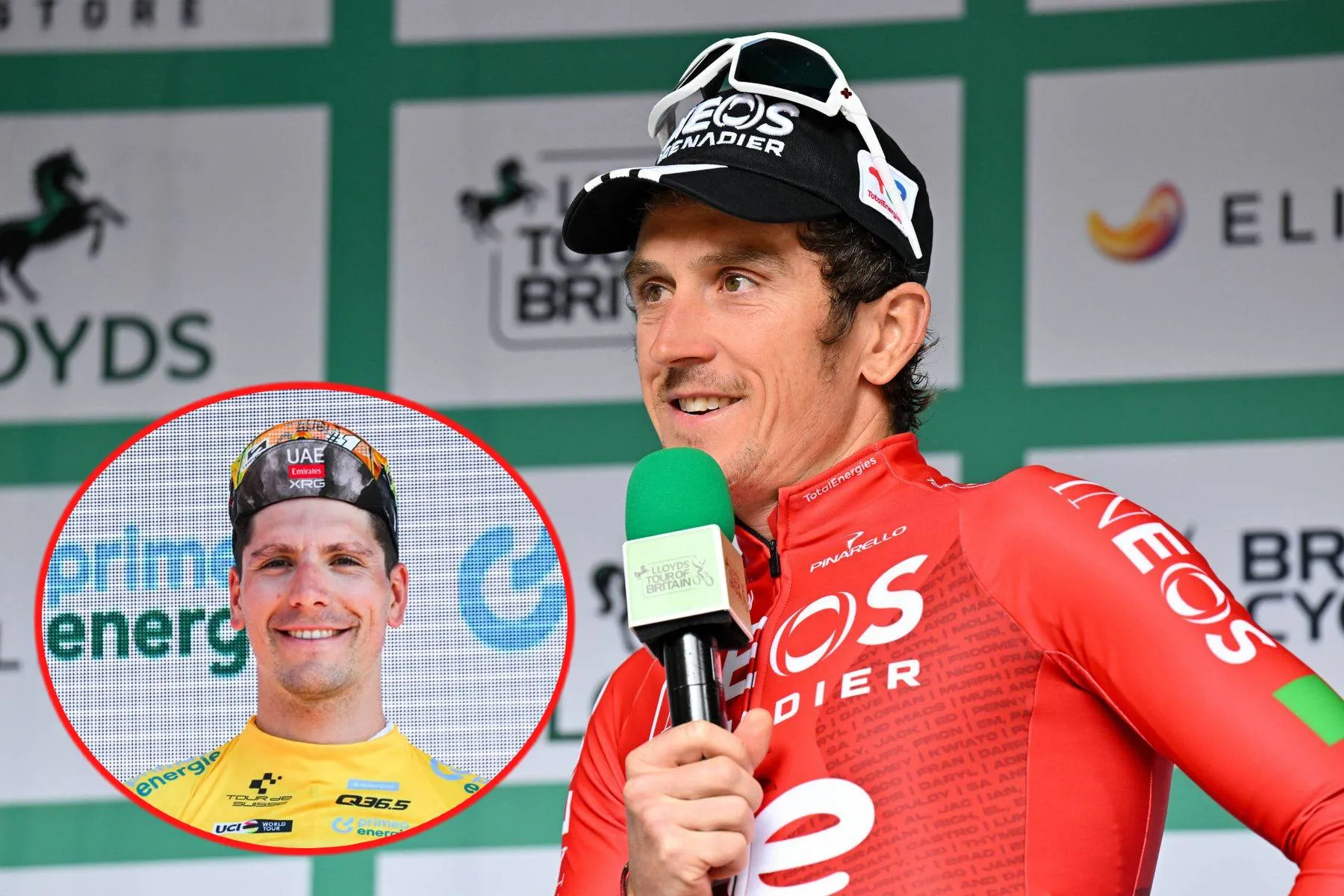ANALYSIS | Is Mads Pedersen on for an all-time great performance at the Giro d’Italia 2025?
CyclingThursday, 15 May 2025 at 09:30
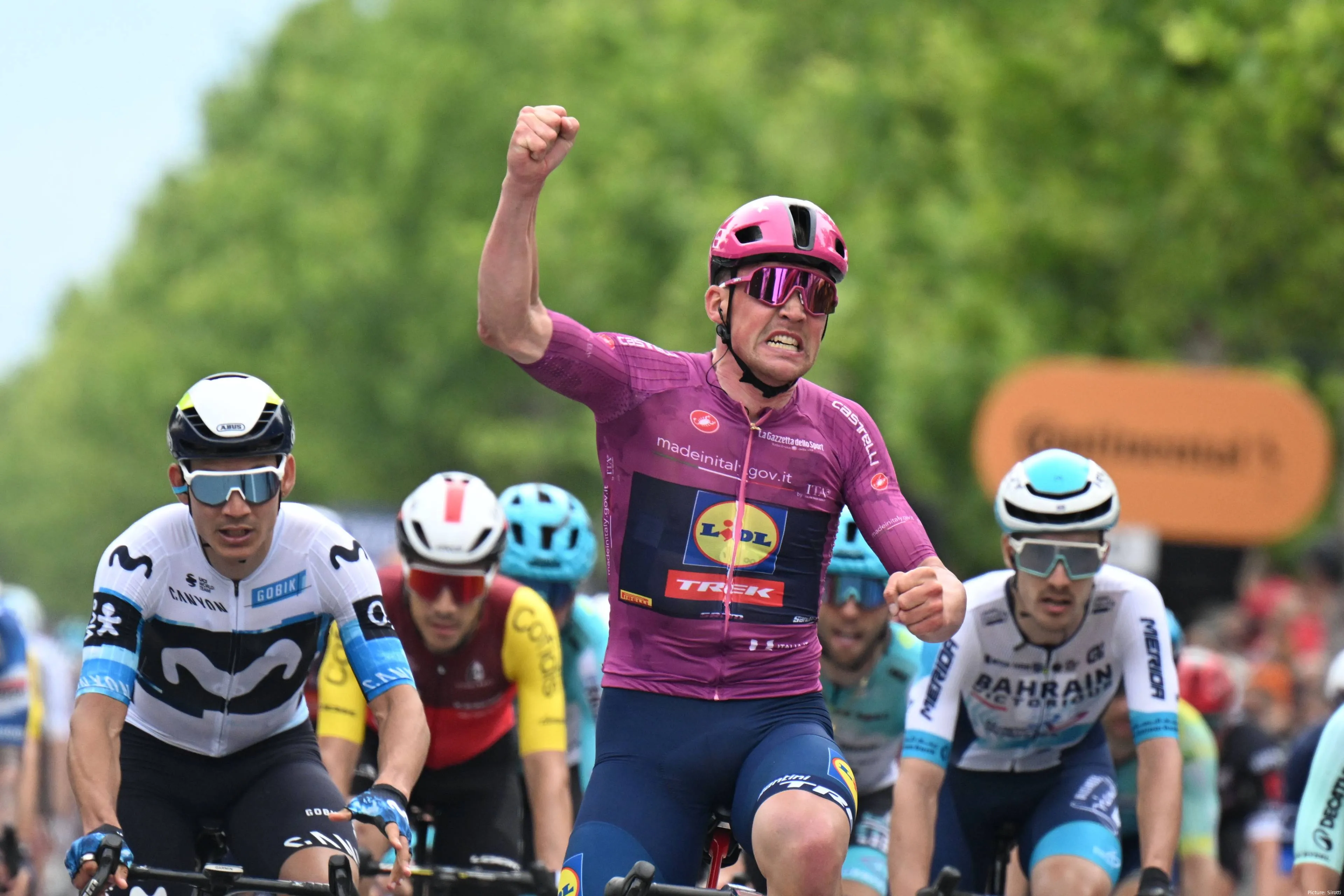
Five stages down at the Giro d’Italia and Mads Pedersen is
already threatening to redefine what’s possible for a classics man at a Grand
Tour. Three stage wins in the opening five days, including the uphill drag on
stage 5 while wearing the Maglia Rosa, is one of the most explosive starts to a
Grand Tour seen in recent years. The Lidl-Trek rider is in the form of his
life, and with 16 stages still to come, the question now isn't whether Pedersen
can win the Maglia Ciclamino. It's how far he can go, and how many stages he
can win.
Stage 5 was far from a traditional sprint finish. After an
intense tempo was set by UAE Team Emirates - XRG, the race fragmented following
the final climb. Big names like Wout van Aert and Antonio Tiberi were briefly
distanced, though the peloton largely regrouped before the decisive finale.
Breakaway duo Mattia Bais and Lorenzo Milesi were reeled in with 13 kilometres
to go, setting the stage for a chaotic run-in.
With just over 4km remaining, Van Aert faded entirely,
making good on his pre-stage comments about not being at his best. The lack of
a 3km safety banner for GC riders added to the tension, with Primoz Roglic
taking matters into his own hands by going to the front at 2km to go.
Read also
For a moment, it looked as if Pedersen was slipping
backwards, had he finally found his limit? Was this uphill finish just that
little bit too challenging? But with a kilometre to go, he was right back on
the wheel of Mathias Vacek, perfectly poised for the sprint. In the final dash,
Pedersen held off challenges from Edoardo Zambanini and Tom Pidcock to secure a
third victory.
Having already won reduced sprints on stages 1 and 3,
Pedersen is proving himself far more than a one-dimensional fast finisher. He's
now matched his personal best for most stage wins in a single Grand Tour, three,
a record he set at the 2022 Vuelta a España. At 29 years old, the former world
champion is riding with a maturity and confidence that suggests he could go
even better here.
It’s worth remembering that Pedersen is only riding this
Giro because Lidl-Trek chose to save Jonathan Milan, last year’s Maglia
Ciclamino winner, for the Tour de France. It’s a selection decision that’s now
looking inspired. Pedersen is the clear favourite to win the points
classification, and with several more sprint-friendly and rolling stages on the
horizon, it’s not outlandish to ask: where could this run of form take him?
Read also
It’s not without question that Pedersen could spend the
majority of the first two weeks in pink, until the GC men come alive in week 3.
We could be quite used to Pedersen in pink by then.
If he adds another two or three wins, we’ll be entering
legendary territory. So how would such a Giro stack up against the great Grand
Tour performances of history? In 2024, Tadej Pogacar picked up two of the
greatest grand tour performances we have ever seen. At the 2024 Giro, he won
six stages, on the way to winning the pink jersey by nearly 10 minutes. He
couldn’t do the same at the Tour could he? He could, he won six stages,
decimating Jonas Vingegaard and Remco Evenepoel on his way to an incredible
Giro-Tour double.
So other than Pogacar, who else could Pedersen rival with
his Giro performance? To find out, let’s look back at three of the most iconic
individual campaigns ever seen, and see where Pedersen could fit in.
Read also
Bernard Hinault – 1985 Tour de France
The 1985 Tour de France stands out not only because it was
Bernard Hinault’s fifth overall victory, but because of the sheer adversity he
overcame en route to it. At 30 years old and nearing the twilight of his
career, Hinault entered the race as favourite, but his Tour was almost derailed
mid-race by a nasty crash and a serious bout of bronchitis.
After taking the yellow jersey on stage 8, Hinault was in
command of the race, but a crash on stage 14 left him with a broken nose. Not
long after, bronchitis set in, visibly affecting his breathing and energy
levels, the worst possible scenario mid Tour. Despite this, he refused to
abandon and, in classic Hinault style, rode through the pain.
The key turning point came in the mountains, where his
teammate Greg LeMond, stronger on the day, was ordered to hold back to protect
Hinault’s lead. It was a controversial moment, but Hinault’s resolve to see the
race through, despite injury, illness, and pressure, remains one of the
gutsiest efforts in Tour history.
Read also
He won the 1985 Tour by just under 2 minutes ahead of
LeMond, and with it winning his fifth yellow jersey. It was not his most
dominant display, but perhaps his most heroic.
Eddy Merckx – 1969 Tour de France
If one rider set the standard for total domination at a
Grand Tour, it’s Eddy Merckx. His 1969 Tour de France performance remains
arguably the most complete ever produced by a rider in a single edition of any
Grand Tour. Not only did he win the overall classification by nearly 18
minutes, he also claimed the points and mountains classifications, plus six
individual stages.
What makes Merckx’s 1969 Tour so iconic is the fact that he
was just 24 years old and it was his Tour debut. He attacked with the freedom
and fearlessness of a man who didn’t yet recognise his own limits. On stage 17,
Merckx soloed over four climbs to win by more than eight minutes, laying waste
to his GC rivals and securing the yellow jersey in the most emphatic way
imaginable.
Read also
No rider has replicated this GC-points-KOM treble since. In
an era with less specialisation and greater physical demands placed on
all-rounders, Merckx’s 1969 ride remains the purest embodiment of what it means
to be the best in every department. Pedersen won’t match that breadth, but in
terms of excelling within his own category, he’s on track to achieve something
extraordinary.
Mario Cipollini – 2002 Giro d’Italia
If Pedersen wants to be remembered as the greatest sprinter
at a single Giro, he will need to eclipse Mario Cipollini’s 2002 campaign. At
the age of 35, Cipollini rolled back the years to win six stages, still the
post-war record for a sprinter at a single edition of the Giro.
Cipollini didn’t just win stages. He dominated them. Backed
by a Domina Vacanze team completely dedicated to delivering him to the line, he
powered through flat stages with unmatched speed and precision. His wins came
on stages 1, 3, 9, 15, 18, and 20, demonstrating both consistency and staying
power over the three weeks.
Read also
His efforts helped to redefine the role of the sprinter in
Grand Tours. No longer just passengers waiting for flat finishes, sprinters
were now headline acts. Cipollini didn’t compete for the GC or wear the Maglia
Rosa, but he animated the race in his own way, and was loved by the fans for
it.
That same celebration is building now around Pedersen. If he
adds three more wins, the comparison becomes undeniable. If he gets four, it
may be time to rewrite the record books.
Remember, Cipollini is the man who has won the most Giro
stages ever, with a whopping 42 victories ahead of Alfredo Binda, 41. Whilst it
is safe to say Pedersen, and the rest of the peloton, will probably never touch
those numbers, the Dane can add to his tally over the next 10 days or so,
before the true mountain tests begin.
Read also
With three wins in five days and the leader’s jersey on his
back, Pedersen has already delivered the kind of Giro performance that most riders
dream of. His versatility has impressed, he can win in sprints and survive the
hills along the way too.
He isn’t riding solely for stage wins either. The fact that
he’s wearing pink shows how complete his campaign has been so far. While it’s
unlikely he’ll keep the jersey in the high mountains, it’s possible that he’ll
remain a presence near the top of the general classification until the climbing
intensifies.
It’s this broader contribution to the race (beyond just the
bunch sprints) that’s fuelling comparisons with the greats. Of course, Tadej
Pogacar’s back-to-back six-stage slaughters at the 2024 Giro and Tour remain on
a different tier. The Slovenian’s destruction of GC rivals while racking up
stage wins defies categorisation.
Read also
But within the world of sprinters and stage hunters,
Pedersen may be on the cusp of history. Three wins already. More sprint stages
to come. If he hits five or six, with consistent high finishes elsewhere, we
may be talking about the best Giro d’Italia by a sprinter since Cipollini, or
ever.
And who knows? With the confidence of wearing pink and the
momentum of three wins already, Mads Pedersen’s Giro might just become the
defining performance of his career. How many stage wins do you think Pedersen
will end up with, let us know below.
claps 0visitors 0
Just in
Popular news
Latest comments
- UAE doping...I'm shocked.
 parisbound0020-02-2026
parisbound0020-02-2026 - Total scandal how long this is taking and the resistance to it. I said something like this could happen and very luckily it was more a scare than ANOTHER tragedy. Not sure it will change many people’s minds but I will be blaming them if tragedy does happen. FFS there’s ZERO disadvantage to carrying one of these, especially if its weight gets incorporated into the minimum allowed. NOBODY questions the wearing of helmets anymore and few remember the pointless resistance to that.Mistermaumau20-02-2026
- Time will tell. He did have his best year by far last year, so I am a bit reluctant to call him yesterday's man quite yet.mobk20-02-2026
- complete joke with the lead motorcycles on this TT, Jaun had the best driver for first 2 minutes maybe more at 10 bike lengths ahead.jad2920-02-2026
- Another unbelievable excuse came during the Giro dell'Emilia'24. He claimed something got in his eye, then he couldn't finish. My friend from Bologna was in the crowd and told me he was crying with frustration (Pogacar dropped him on the climb to San Luca). Remco's problem is that he refuses to be "just" a great champion; he wants to be Mertz or more than Mertz
 maria2024202420-02-2026
maria2024202420-02-2026 - I’m afraid Almeida’s time has come, and gone. He’s had chances to win more but with the strength of the new crop of youngsters, there’ll be little left for him to pick up. He’s just a slightly more aggressive Sepp Kuss, born to assist.Mistermaumau20-02-2026
- Just as circumstantial as market manipulation by the too big to shut ups these days. There’s are only very limited resources to follow up everything and so more and more people realise the risk isn’t that highMistermaumau20-02-2026
- Mediocre TT for Almeida relative to his usual. Seixas definitely proving he is the real deal here.mobk20-02-2026
- It does not take a genius to know that the intended recipient is Soler but again evidence is circumstantialabstractengineer20-02-2026
- The aircon in his room was not working but it was working in the other teammates rooms right. The team would give the lesser rider that room while Remco their leader, their savior slept peacefully in the arms of the aircon. Sometimes the excuses beggar beliefabstractengineer20-02-2026
Loading
Write a comment
